Root canal treatment in Turkey is a major component of the country’s dental care, which is well-known for combining cutting-edge technology with affordability. The procedure preserves and repairs the teeth when they’re in danger of being extracted. The main objective is to extract diseased or injured pulp from a tooth.
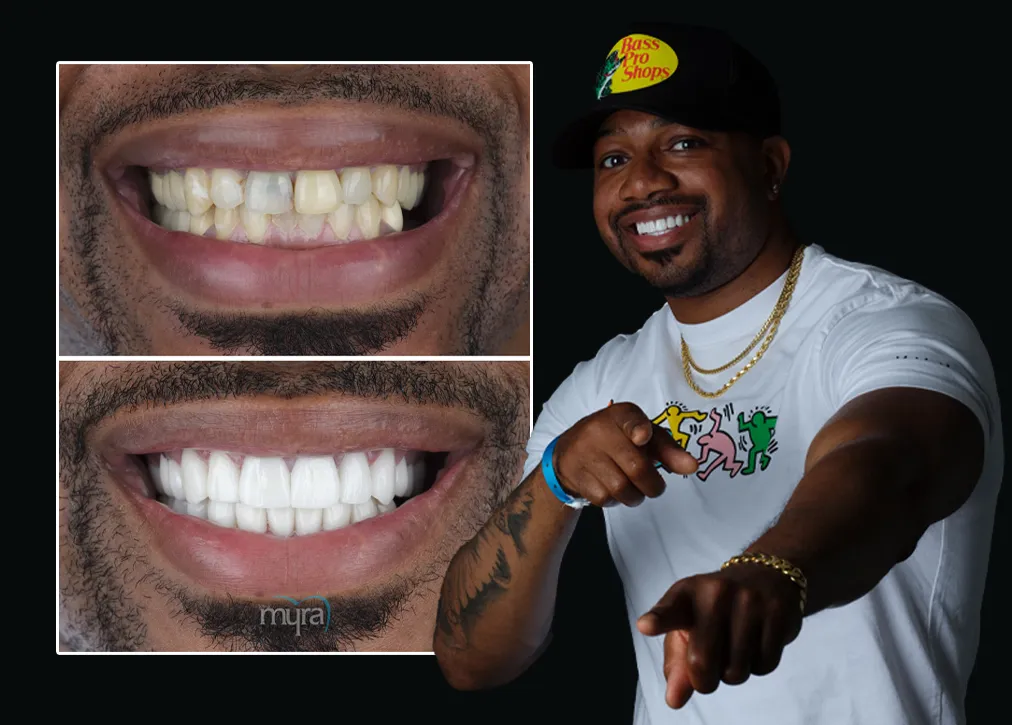
The root canals are sanitised and shaped. The process concludes with the sealing of the area to hinder infection propagation. Indications of pulp injury or infection, such as pain and swelling, necessitate the surgery.
The root canal procedure guarantees effective tooth treatment. It starts with an x-ray to assess the severity of the injury, then a local anaesthetic is applied. Pulp removal follows, with the canals being shaped and sanitised after.
The last phase finishes with filling and sealing the canals. It restores the tooth's strength and look, which are then capped with a crown. Severe cavities or trauma are what cause root canal treatments to become necessary.
Root canal treatment Turkey is renowned for providing high-quality service at an affordable price. Dentists with advanced training, utilising advanced equipment, take care of patients for a far smaller price in other global territories. Local and international patients seeking dental care find the root canal Turkey price competitive.
Root canal Turkey alleviates pain and prevents pulp infections from spreading to neighbouring teeth. It preserves the normal bite and chewing efficiency, avoiding the problems associated with tooth extraction. The risk is low and the success rate has grown due to contemporary techniques and materials.
How to Explain the Concept of Root Canal Treatment in Turkey?
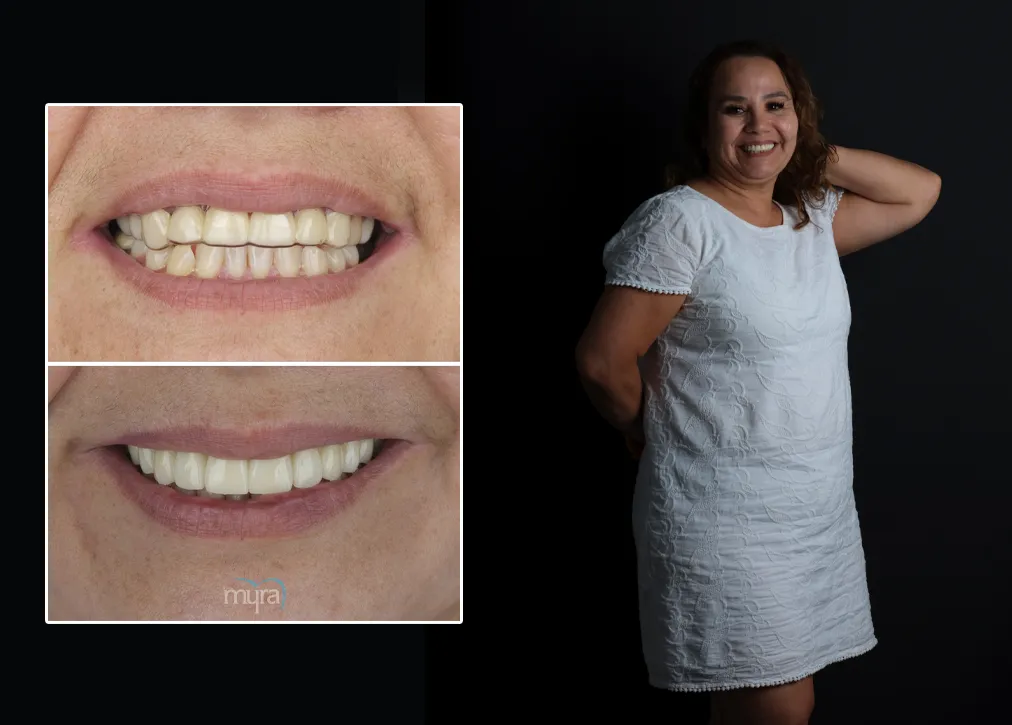
To explain the concept of root canal treatment in Turkey, concentrate on its core definition. A root canal is a technique for solving problems connected with the dental pulp, the soft tissue at the tooth’s centre, which houses the nerves. Its objective is to eliminate the damaged pulp to alleviate pain and prevent further damage.
A root canal is called for severe deteioration that has penetrated deep into a tooth and neglected cavity-caused infections. It’s suitable for situations such as tooth injuries and pulp harm from prior dental surgeries. Maintaining the dentition's natural alignment and capacity depends on the tooth's preservation.
Root canal treatments in Turkey comply with strict dental hygiene guidelines. Sophisticated procedures and tools serve to facilitate the correct identification and remediation of root canal-related diseases. Turkish dentists are masterful at eliminating the infection-ridden pulp and giving it a thorough cleanse, guaranteeing protection against recurrent infections.
How Does a Root Canal Treatment in Turkey Work?
Root canal treatment in Turkey works to heal teeth suffering from extensive decay and harm to the interior pulp. Contaminated and ruptured pulps cause aches and lead to higher-risk problems. The treatment removes the origin of contamination or rupture to reduce suffering and hinder its spread. It scours out the impacted pulp and then protects the vacated cavity and canals from infection by microbes.
Root canal treatments in Turkey start with identifying the disease origin within the pulp. The idea behind it is that a mature tooth survives without the pulp as the neighbouring tissues nourish it. It makes the removal of pulp a viable solution to treat contamination, saving the tooth.
Thorough cleaning of the inner chambers follows, ensuring all traces of contamination are eliminated to minimise the risk of new ones. The hole is filled and closed to protect the sterilised and moulded root canals from bacterial invasion. The biocompatible filling material plugs the hole the pulp occupied before.
Root canal treatments in Turkey use fillers designed to have a snug fit inside the cavities to hinder microbes from re-entering. The sealing of the treated tooth ensures success, which eliminates infection sources and protects the tooth from newer threats. It’s proficient in treating ruptured or contaminated pulps, allowing teeth to remain functional and healthy.
Why Are Root Canal Treatments Important in Turkey?
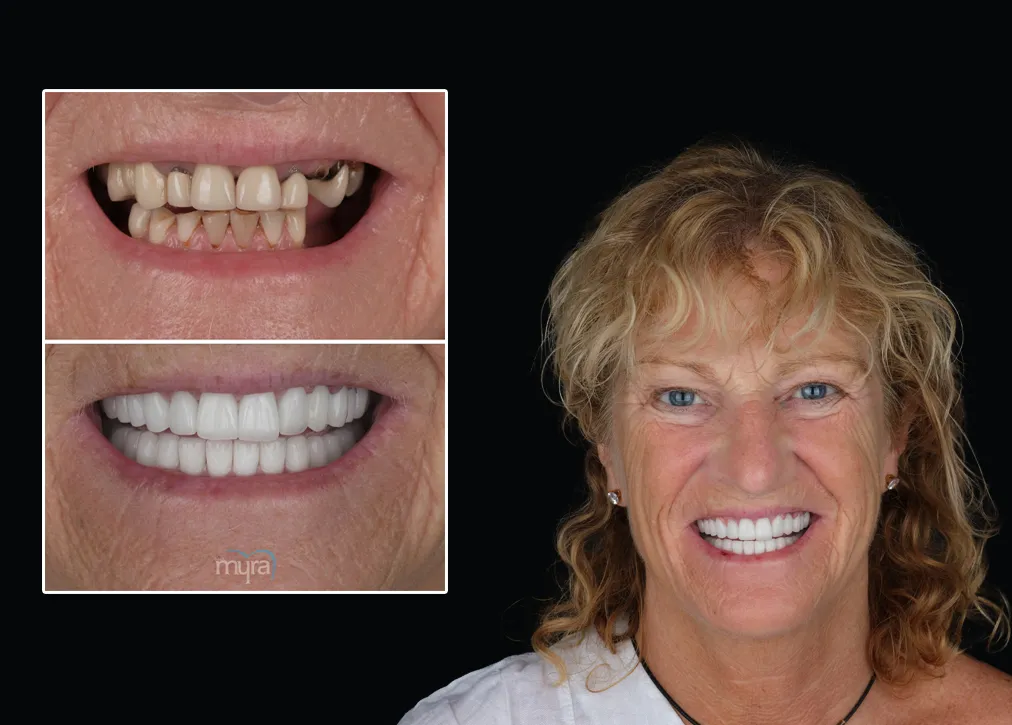
Root canal treatments in Turkey are important for the prevention of tooth extraction. Root canal treatments safeguard teeth from decay-caused extraction through the excision of the infected or harmed inner pulp, restoring the tooth’s integrity. It preserves the teeth, keeps the bite in place and maintains chewing efficiency. Its loss or neglect leads to more complex dental issues.
Turkey’s emphasis on root canal treatments illustrates the country's commitment to high-calibre orthodontic care. The country guarantees its dental patients superb care through its skilled practitioners adept at handling the available innovative equipment. Root canal treatments address infection-caused discomfort and tenderness.
Root canal treatments minimise the risk of adverse effects. Abscess growth is suppressed, halting contamination from being transmitted to other parts of the mouth or body. They hinder health issues from arising due to poor oral wellness.
Root canal treatments in Turkey improve patients’ oral vitality. Turkish dentists’ effective treatments help patients return to their normal routines free from pain that impacts their day-to-day lives. The treatments uphold patient dental health, demonstrating their importance.
What Are the Situations in Which Root Canal Treatment in Turkey Is Preferred?
The situations in which root canal treatment in Turkey is preferred are listed below.
- Severe Tooth Decay: Root canal treatment in Turkey is preferred for teeth that have decayed to their pulp. The treatment removes the pulp to reduce pain and stop the infection from spreading, preventing tooth removal.
- Presence of Abscess: Neglected cavities or prior surgeries cause abscesses to emerge at the tooth’s root, necessitating the procedure. It removes the contaminated tissues and eliminates the inflammation and pain they bring.
- Significant Tooth Damage or Trauma: The treatment is ideal for teeth with significant damage or trauma, such as accident-related injuries. It preserves the tooth structure to stop greater deterioration and the need for excision.
- After Repeated Dental Procedures: Teeth become weak or prone to infection after undergoing multiple surgeries. A Dental Root Canal treatment removes the inflamed or infection-ridden pulp to solve such issues, restoring the tooth's health and functionality.
How Is a Root Canal Treatment in Turkey Done?
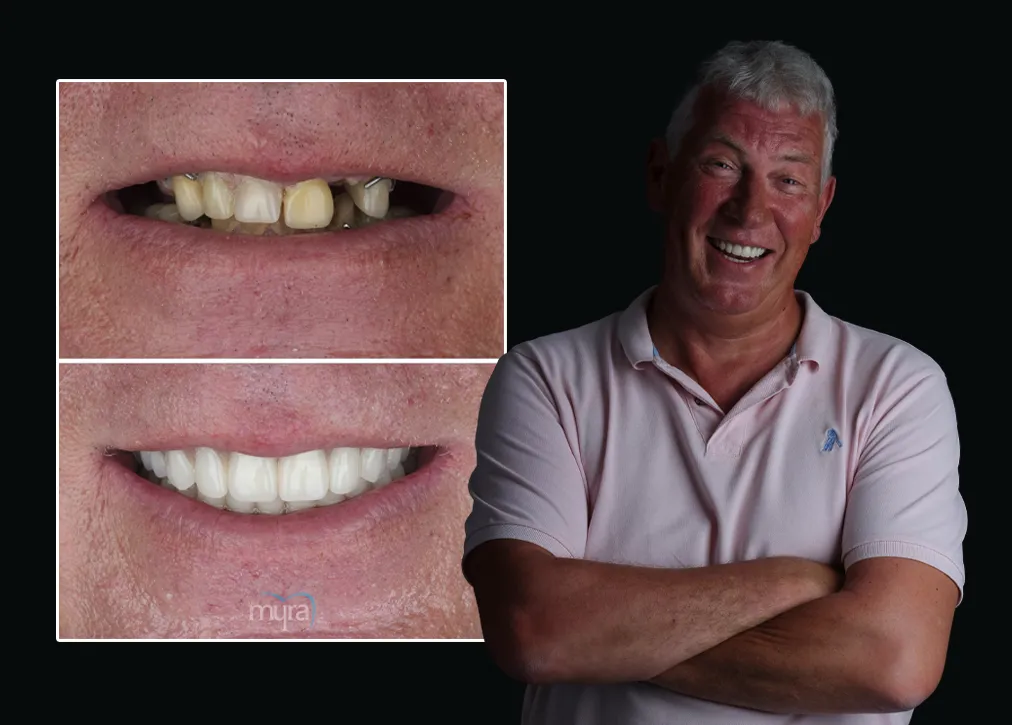
A root canal treatment in Turkey is done using the steps listed below.
- Understand the diagnosis. The procedure starts with a comprehensive diagnosis to figure out the extent of infection or tooth damage using cutting-edge imaging methods. It establishes the precise course of therapy, confirming whether root canal surgery takes care of the identified problem.
- Administer local anaesthesia. Numbing the area adjacent to the identified problem area with local anaesthetics comes next. It guarantees comfort and painless care, enabling the completion of the process without discomfort.
- Create an access hole. A tiny hole is drilled into the tooth to give access to the pulp chamber. The creation of the hole is performed with great care to allow passage to the diseased pulp with the least amount of harm to the tooth structure.
- Take out the contaminated pulp. Specialised instruments are employed to extract the pulp after gaining entry to its chamber. It removes the cause of the discomfort and contamination, preparing the tooth for healing and restoration.
- Clean and shape the root canals. Cleaning and shaping the root canals follow the pulp excision. Shaping the canals includes scouring out leftover debris and bacteria and getting them ready for filling.
- Fill the canals. A biocompatible substance is used to fill the holes, with gutta-percha being a common substance used. Filling them in maintains the stability of the tooth and stops bacterial invasions from reoccurring.
- Seal the tooth. A permanent or temporary filler is used to seal the access hole. The seal completes the root canal therapy, reinstating the tooth's structure and shielding it from additional infection.
How Long Does a Root Canal Treatment in Turkey Take?
A root canal treatment in Turkey takes a maximum of three two-hour sessions. The root canal’s intricacy, along with the extent of contamination or rupture, impact how long it takes. For example, a tooth with severe affliction or intricate root canals requires more time for a thorough remedy.
The initial session focuses on eliminating the affected pulp and then sanitising the inner chambers. It lasts up to two hours when the infection is deep-seated or if several canals need cleaning. The priority is ensuring all contaminated material is pulled out to prepare the canals for filling. The following sessions involve additional sterilisation and shaping, then finishing with the final filling and sealing.
Root canal procedures sometimes require a dental crown to rebuild the tooth's robustness and visual appeal. It necessitates a separate visit, which takes an hour, depending on the adjustments necessary for a perfect fit. The entire process, from the initial surgery to the crown installation, guarantees a full repair of the tooth’s performance and aesthetics.
What Are the Benefits of A Root Canal Treatment in Turkey?

The benefits of a root canal treatment in Turkey are listed below.
- Pain Alleviation: Root canal treatments alleviate the acute pain that contaminated or ruptured pulp brings. They excise the damaged tissue to address the origin of the aches, returning to the enjoyment of a pain-free life and carrying on with their regular activities.
- Tooth Rescue: The procedure saves natural teeth from premature extractions. It maintains the integrity of the tooth’s foundation, ensuring better functionality. Root canal treatments keep the smile intact.
- Prevention of Infection Spread: Scouring out the afflicted pulp stops infections from propagating to other areas. It prevents higher-level risks from arising due to untreated infections.
- Oral Healt Improvement: Root canal treatments address and resolve the underlying issues, leading to better oral health. They stop deterioriation from occurring further, reducing the risk of complications at a later time.
- Appearance and Confidence Booster: A root canal ends with the installation of a crown, which improves the smile’s appearance. The combination restores the full functionality of the tooth while boosting the aesthetic appeal of the smile, leading to higher self-esteem levels.
What Are the Downsides of A Root Canal Treatment in Turkey?
The downsides of a root canal treatment in Turkey are listed below.
- Risk of Infection: Root canal treatments have high success rates but the risk remains. For example, bacteria staying in the tooth post-treatment or the sealant’s breakdown over time lead to reinfection, requiring additional dental work.
- Complex Procedure: The procedure is complex and demands precision. It involves multiple challenging stages, even more so for teeth with intricate root systems. The difficulty leads to longer treatment times and the need for specialised care.
- Discomfort During Recovery: Discomfort or mild pain persists for a few days after the treatment. It is manageable with over-the-counter pain medications but is inconvenient and affects daily activities.
- Risk for Tooth Fragility: A tooth is more fragile after pulp removal. A crown or filling helps protect the tooth but they are not as robust as an authentic, untreated tooth. Extra care with treated teeth is required, such as when eating hard or chewy foods.
- Cost Considerations: Root canal treatments are expensive, commanding higher prices if they require multiple sessions or specialised care. The additional cost of a crown or other restorative work adds to the expense, making it a significant financial consideration.
What Are Root Canal Treatment Materials?

The root canal treatment materials are listed below.
Gutta-Percha: Gutta-Percha is a pliable compound employed in filling and sealing the canals once they’re cleaned. It’s favoured for its biocompatibility and effectiveness. The compound is thermoplastic, softening when heated to enable a tight seal within the root canals. Its pliability and inert properties make it ideal for conforming to the intricate shapes of root canals, ensuring a thorough seal against infections.
Endodontic Files: They are specialised tools designed to scour and mould the root canals during the treatment. The files are made from stainless steel or nickel-titanium. They bend to allow navigation through the curved passages of root canals. Their design aids in removing afflicted tissue, preparing the canals for filling.
Dental Sealants: Dental sealants are used to seal the hole drilled during the initial stage of treatment once the canals are scoured and moulded. They’re fabricated using composite resin, known for its durability and compatibility with tooth structures. It protects the cleaned canals from bacterial entry and restores the tooth's surface integrity.
X-ray or Digital Imaging Technology: X-rays or digital imaging assist with diagnosing the extent of infection and planning next steps. They provide detailed visuals of the tooth's structure, enabling an accurate assessment of the condition and navigation of the root canals during the procedure. Advanced imaging techniques ensure precise and effective treatment outcomes.
Dental Crowns: A treated tooth receives a dental crown for extra safeguarding and strength. Dental Root Canal Treatments employ custom-made crowns that match the real teeth colour and dimensions. They bring back the original look and performance, delivering a durable remedy for weakened teeth post-treatment.
Who Is Root Canal Treatment Suitable For?
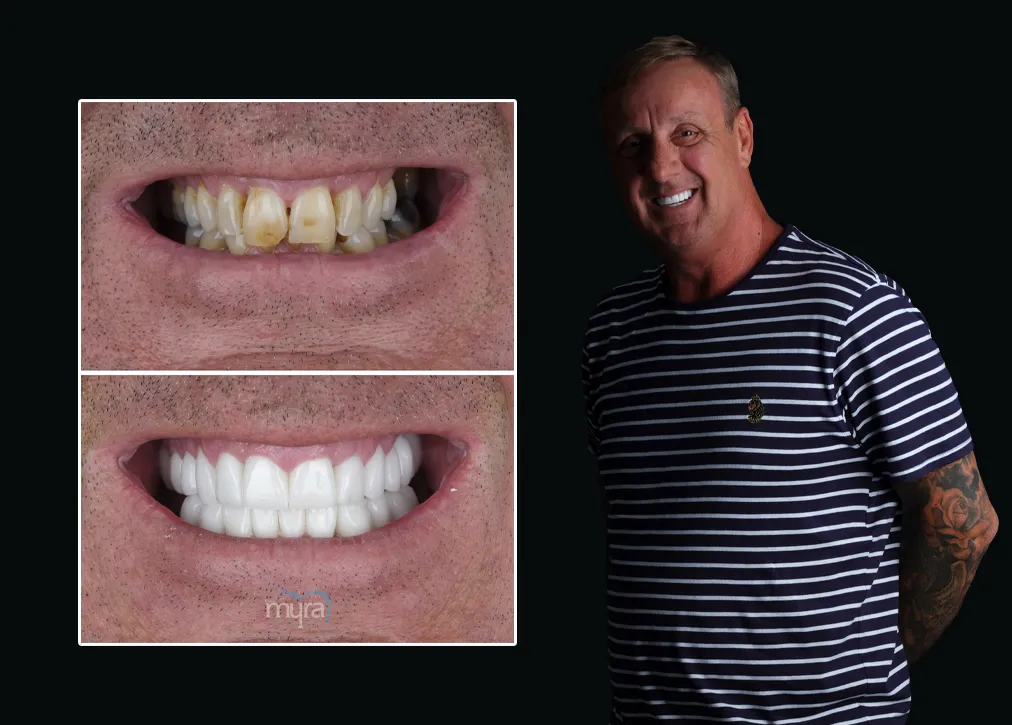
A root canal treatment is suitable for individuals experiencing tooth decay that has penetrated into the pulp. Root canal treatment removes contaminated or ruptured pulp, which causes significant sensitivity and pain. It’s beneficial for individuals who wish to save their natural teeth and avoid extraction. It preserves the tooth's integrity and performance, even for afflictions that are too extensive for a simple filling.
Root canal treatments are applicable for patients who have suffered dental trauma leading to cracked or chipped teeth. The damage extends to the pulp, making it susceptible to infection. The treatment addresses the immediate issue of pain and sensitivity and prevents long-term complications, such as abscesses. It ensures that the teeth of individuals who have experienced significant dental injuries remain healthy and intact.
Root canal treatments are recommended for individuals who have undergone repeated dental procedures on a particular tooth. Frequent treatments lead to dental issues such as weakening of the tooth structure and an increased risk of pulp infection. The treatment offers a way to resolve the underlying issues and relieve discomfort, restoring the tooth to its normal function. It is an effective solution for people who have had multiple dental interventions and are looking to maintain their oral health.
How to Care for a Root Canal Treatment?
To care for a root canal treatment, oral hygiene must be a top priority. Consistent flossing and twice-daily brushing guard against contamination. Combine it with an antiseptic mouthwash to lessen oral bacteria and prevent infections.
Refrain from excessive chewing or biting post-root canal treatment until a filling or a crown is installed. The tooth is weaker and more susceptible to damage in the few days after. Consuming soft foods and avoiding hard or chewy foods protects the tooth. Avoid using the side of the mouth with the treated tooth until it’s recovered
Regular dental check-ups after a root canal treatment guarantee that the tooth undergoes adequate recovery and prevent issues from arising. Lingering discomfort or pain is a signal to contact the dentist right away. The follow-up visits allow for close monitoring of the healing process and confirm its success, ensuring the lasting wellbeing and performance of the tooth.
How Much Does a Root Canal Treatment Cost?

A root canal treatment costs $620 to $1500 (£490 to £1190) in the US, depending on clinic location and whether the dental provider is within or outside the patient’s insurance network. The cost ranges from £119 for basic treatments to £695 for more extensive surgeries in the UK. Private dental treatment costs in the UK are higher than what the NHS charges, where root canal treatments fall under a lower and standardised pricing band.
Root canal treatments remove contaminated or ruptured pulp to preserve the natural tooth, while dental implants replace the entire tooth with a prosthetic. The choice between the two depends on the extent of the problem and financial considerations, so weighing Root Canal vs Implant is ideal beforehand. Dental implants are more expensive and are permanent solutions for missing or extensively damaged teeth, while root canals are for teeth that are savable.
How Much Does a Root Canal Treatment Cost in Turkey?
A root canal treatment in Turkey costs between £32 and £80, offering an affordable option for dental care seekers. The exact cost depends on the location of the clinic and the complexity of the treatment, among others. Clinics in major cities charge higher rates, reflecting the level of expertise and the type of facilities they offer.
The affordability of root canal treatments in Turkey is a chief reason for its becoming an in-demand destination for dental tourism. Foreign patients fly over to the country because of its cost-effectiveness which doesn’t undercut the high standard of care available. The nation's clinics use advanced technology and have knowledgeable staff to ensure high-quality care.
How Much Does a Root Canal Treatment Cost in Antalya?
A root canal treatment in Antalya costs between £150 and £450. The cost reflects the procedure’s varying intricacies and the oral surgeons’ proficiency. Antalya is well-known for its low-cost and high-calibre dental care, drawing clients from around the globe.
Root canal treatments in Antalya are performed using state-of-the-art equipment and approaches. High-tech equipment and skilled dentists are available at the city's clinics, guaranteeing excellent care. The lower cost compared to other countries does not compromise the quality of care received. Antalya is a popular choice among patients due to the excellent level of dental services offered at cost-effective rates.
Root Canal Operation Frequently Asked Questions
Although it is considered to be one of the most comprehensive difficult dental treatment methods for patients, Root Canal Operation is actually a very practical and easy treatment. You ask us questions about Root Canal Operation in Turkey where we publish the list. Thus, patients who want to become Root Canal Operation in Antalya can also benefit from this guide. If you’re ready, we can start with the Root Canal Operation frequently asked questions.
If you do not have a very serious health problem, you do not need to use antibiotics before root canal treatment. In cases where heart disease, diabetes, or immunosuppressive medication is mandatory, the use of an antibiotic recommended by the dentist may be required before treatment.
Root canal treatment on live pulp can be completed in a single session. If the tooth loses its vitality, infection occurs at the root tip and root canal therapy needs to be repeated, the number of Sessions may increase.
Once the core of the tooth is removed, the remaining tooth structure is brittle and cracks quickly. You will probably need a veneer to protect the underlying tooth. These changes completely according to the condition of your teeth and your preference. In some cases it is not necessary. Your dentist can give you the right advice about this.
You can have your teeth pulled out, but if you don't replace the tooth you pulled, the teeth next to it can grow and prevent biting and chewing. This space implant, fixed bridge or moving prosthesis can be made. A fixed bridge may require removing healthy tissue from adjacent teeth, can be expensive, or may require more than one treatment. Therefore, maintaining your own natural tooth should always be your first option.
An X-ray is taken and an evaluation is made. Regional anesthesia is performed if necessary. A latex protective cloth called Rubber dam can be used to isolate the tooth and keep the work area clean and dry for the duration of treatment. The entire treatment is completed with five basic steps. In order to reach the inflamed nerve tissue, an entrance to the tooth is opened. The nerve tissue within the root canals is removed. The channels are cleaned with thin tools and the channels are given a special shape so that they can be closed nicely. If the channels are not completed in one session, a temporary fill is made to the entrance and the inside of the channels is maintained between sessions.
The root canals are filled and the canal entrances are sealed with a suitable material to prevent bacteria from re-entering the canal. The entrance of the tooth is closed with a temporary filling. X-rays are taken before, during and after treatment. Permanent filling is done in place of the temporary filling is removed within four weeks or, if necessary, the tooth is covered in the final stage of the canal filling will be evaluated with the controls.
If the tooth is properly treated and a healthy root canal is done and the patient pays attention to oral care, the length of time the tooth stays in the mouth is no different than a normal tooth. Root canal treatment teeth, pain does not detect, should be checked periodically by your dentist.
Every person can have bacteria in the oral cavity. Bacteria combine with many of the foods we take to form acids in our mouth and they do not hurt unless undesired conditions occur. If we cannot remove these acids from our mouth, these substances will damage the enamel and cause the enamel layer to rot. If these bruises are not treated, they pass into the dentin layer below the enamel layer. Although the dentine layer warns us through pain, if the caries formed are still not treated, then microorganisms move towards the pulp.
Meanwhile, the pulp tries various ways to protect itself. But if the tooth is not treated again, microorganisms after a while destroy the veins and nerves in the pulp and cause inflammation. Another way of inflammation in the pulp is trauma. A blow to the tooth can cause the veins and nerves entering the root of the tooth to break, thereby losing its vitality. The addition of microorganisms in any way causes this inflammation of the pulp. Also, long-term periodontal diseases around the tooth can cause this.










